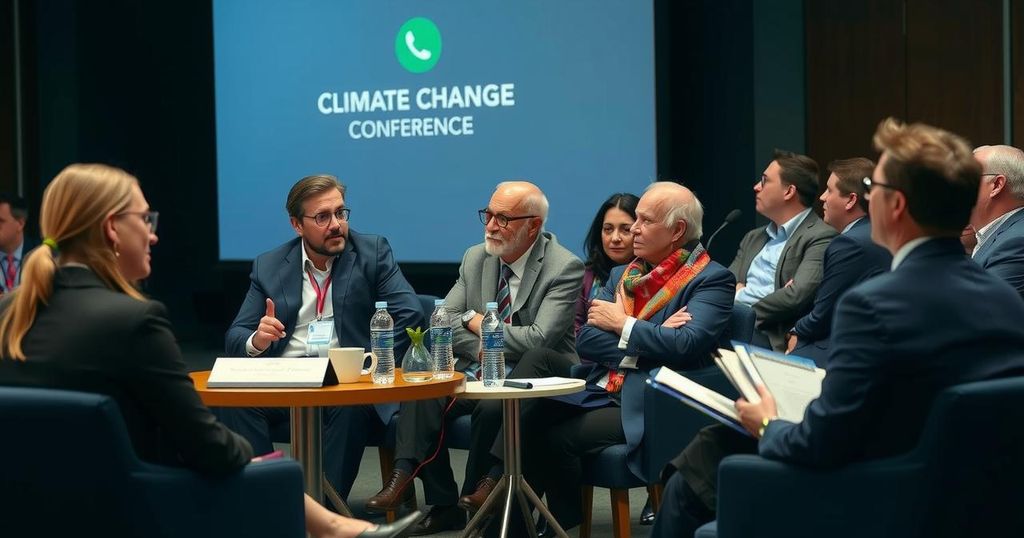COP29: Wealthy Nations Agree to Enhance Climate Finance to $300 Billion Annually

Wealthy nations at COP29 have agreed to increase climate financing to $300 billion annually for developing countries. This decision follows strong criticism of an earlier proposal of $250 billion, deemed inadequate. Further negotiations and political considerations are influencing commitments, with a broader goal of achieving $1.3 trillion a year by 2035 for climate action.
At the recent COP29 climate talks in Azerbaijan, it was reported that wealthier nations have tentatively agreed to increase climate financing for developing countries to $300 billion annually, a significant rise from the previously proposed $250 billion. This agreement came after intensive negotiations between key nations, including the United States, the European Union, and China, amid widespread dissatisfaction from developing nations regarding the initial financial proposal, which they deemed insufficient to address climate change initiatives.
The talks extended beyond their scheduled conclusion, highlighting the urgent nature of the financial commitments needed to assist poorer countries in both transitioning to low-carbon economies and adapting to the effects of climate change. As discussions continued, numerous representatives from developed countries expressed concerns regarding future political climates, particularly with upcoming elections in the United States and other nations potentially shifting to more conservative leaderships.
Development advocates underscored that even the higher $300 billion target is markedly below the necessary funding levels, estimated by experts at $1.3 trillion yearly by 2035. Activists have raised even higher demands, arguing that substantial financial commitments should be direct grants rather than loans, asserting the need for transparent terms to prevent exacerbating existing national debts of poorer nations.
In parallel, the matter of transitioning from fossil fuels remained contentious, with criticism directed at the host country, Azerbaijan, for attempting to dilute essential commitments established in prior negotiations. The overall landscape at COP29 reflects ongoing tensions between developed and developing nations over the structure, amount, and accessibility of climate financing, as well as the necessity to solidify commitments to renewable energy following years of dialogue.
The climate finance discussions at COP29 are critical as they reflect the ongoing global struggle to address climate change, particularly the financial mechanisms designed to support developing nations in their transition to sustainable energy sources. The previous COP meetings have established frameworks for wealthy countries to assist poorer nations, yet the adequacy of funding has often been a point of contention. The growing urgency for climate action due to extreme weather events has intensified demands for more robust financial commitments from developed countries, which have historically contributed more to climate-related emissions.
In summary, the COP29 climate negotiations in Azerbaijan highlighted a pivotal moment for international climate finance, with developed nations, under diplomatic pressure, raising their offer to $300 billion per year to assist developing countries. However, this commitment remains significantly short of what is needed according to many stakeholders, who argue for direct grants that can prevent deeper economic entrapments for poorer nations. As the talks unfold, the balance between necessary financial support and political will continues to be tested.
Original Source: www.theguardian.com






